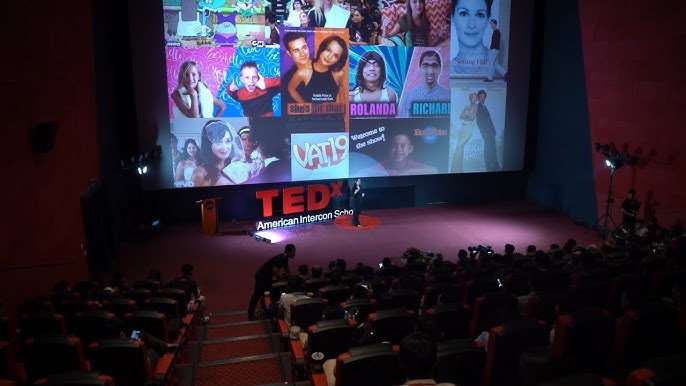
How Pop Culture is Changing the Way We Think in the Digital Age
Josh Shear – Pop culture has always played a pivotal role in shaping societal values, beliefs, and attitudes. However, the digital age has taken this influence to a whole new level. With the rise of social media platforms, streaming services, and interactive media, pop culture is no longer confined to TV shows, music, and movies. Today, it’s a 24/7 experience that shapes how we communicate, interact, and perceive the world around us.
In 2025, pop culture is no longer just a reflection of society. It’s actively reshaping how we think, make decisions, and engage with one another. Whether it’s viral trends, memes, or the constant stream of digital content, pop culture is becoming the lens through which we interpret our experiences, both on a personal and global scale.
One of the most profound ways pop culture is shaping our thinking is through social media and viral trends. Platforms like Instagram, TikTok, and Twitter have become the breeding grounds for trends, challenges, and viral content that reach millions of people in an instant. This rapid dissemination of ideas and cultural shifts is powerful because it happens in real-time, and it often involves direct participation from users themselves.
Take the rise of TikTok challenges, for example. What starts as a simple dance or creative challenge can quickly morph into a global movement, influencing fashion, behavior, and even political activism. These viral trends shape not only what’s cool but also how we view ourselves and others in a digital space. We’re not just consuming pop culture; we’re creating it, shaping it, and broadcasting it to the world.
Another massive shift in the digital age is the way we consume media. The rise of streaming platforms like Netflix, Hulu, Disney+, and Amazon Prime has drastically altered the entertainment landscape. In the past, TV shows and movies were limited by time slots, commercial breaks, and geographic constraints. Now, we can access an entire world of entertainment with a click of a button, anytime, anywhere.
This on-demand access has led to a shift in how we engage with pop culture. We no longer watch shows or movies as part of a shared, scheduled experience. Instead, we binge-watch entire seasons, making it easier to immerse ourselves in stories, characters, and ideas without interruption. This new way of consuming media has led to the rise of cult followings, fan theories, and an obsession with episodic content that shapes how we think about narrative, character development, and engagement with content.
Streaming services also contribute to the globalization of pop culture. Shows and movies from different countries are now easily accessible, allowing audiences to experience cultural narratives from around the world. This has created a more interconnected global culture, where ideas and trends can cross borders effortlessly, further shaping our worldview.
Gaming is another area where pop culture is having a profound impact on how we think. The growth of video games and interactive media has revolutionized storytelling, allowing players to become active participants in the narrative. Games like Fortnite, Minecraft, and Animal Crossing are more than just entertainment—they’re immersive experiences that influence everything from social behavior to consumer habits.
Through gaming, players engage in virtual communities, form relationships, and make choices that impact the world around them. The power of these digital spaces extends beyond the screen, with in-game events influencing real-world trends. Whether it’s a limited-edition skin or a special in-game event, gaming has become a major cultural force, shaping not only how we spend our time but also how we interact with each other.
Furthermore, gaming culture has started to influence the real world. From fashion trends inspired by characters to the increasing integration of gaming terminology in everyday language, the crossover between virtual worlds and reality is growing stronger. This shift is changing how we think about competition, collaboration, and even personal identity.
In the digital age, celebrities are no longer just actors, musicians, and athletes. They are influencers who leverage their online platforms to shape trends, opinions, and consumer behavior. With millions of followers on Instagram, YouTube, and TikTok, digital influencers have the power to shape pop culture in ways traditional celebrities never could.
These influencers create content that reflects their lifestyles, values, and beliefs, influencing everything from fashion choices to political opinions. Their reach is vast, and their influence is undeniable. As a result, the lines between celebrity culture and everyday life have blurred, with many people adopting the trends and beliefs promoted by these digital stars.
For younger generations, these influencers often serve as role models, shaping everything from self-image to career aspirations. As a result, digital culture is becoming increasingly interconnected, with influencers, fans, and brands all contributing to the larger pop culture ecosystem.
Read More: How Francophone Africa Is Quietly Leading the Global Tech Boom
In recent years, pop culture has become an important driver of political and social movements. From viral hashtags like #BlackLivesMatter to global climate change campaigns, digital platforms have given people a way to organize, share information, and mobilize for change. Celebrities and influencers have used their platforms to raise awareness and advocate for social justice issues, making pop culture a powerful tool for political engagement.
Through memes, viral videos, and social media campaigns, pop culture has been used to raise awareness about critical issues, challenge the status quo, and give a voice to marginalized groups. This shift has made it clear that pop culture is no longer just about entertainment—it’s a vehicle for social and political change.
This website uses cookies.